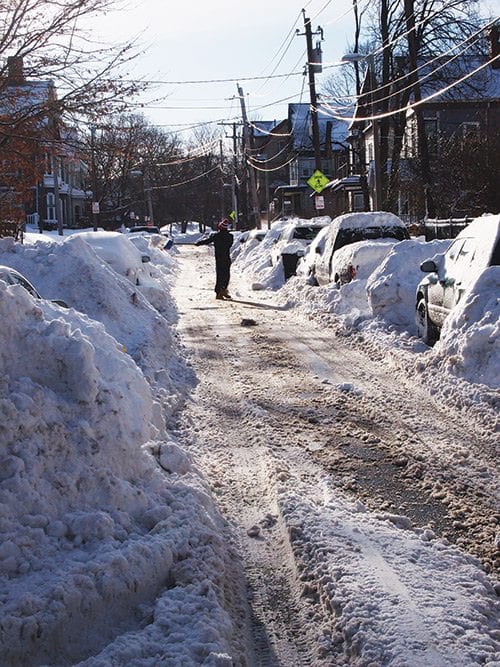A snow job by the Mayor’s office
New ruling against place holders will provoke an avalanche of criticism

Boston has suffered through the snowiest February in recent history. So far, complaints about the inconvenience have been directed at the MBTA. The failure of public transportation has been a major disruption, but the new ruling against place holders in Boston is destined to provoke an avalanche of criticism against the mayor’s office.
There seemed to be no rational plan to cope with the unprecedented volume of snow. Homeowners were required to clear their sidewalks, but were requested not to throw the snow in the street when they did so or shoveled out their cars. With six feet of snow, it was impossible to comply with those directions.
People had no alternative but to shovel out their cars by throwing most of the snow in the street in the hope that the plows would remove it. Those unable to shovel had to pay energetic young men to do the job. With so much snow and so much demand for help, the price for shoveling went higher.
This was a personal expense, borne by the taxpayers, primarily because there was no effective municipal plan. It is only fair, therefore, that those who provided a parking spot should be able to retain rights to it with a place saver until the emergency is over.
Residents of neighborhoods often develop informal parking patterns. Everyone knows that a neighbor always parks in a certain spot, so others will not park there, even though they have the right to do so. Plowing plans involving the residents should be developed for future storms.
In areas with off-street parking there should be a priority to plow the street to the curb. This would provide local parking spots for cars on more congested nearby streets. This strategy was not effectively utilized in the neighborhoods. In fact it still has not been done.
The winter crisis is not yet over. It is unwise to exacerbate the problem in Boston by denying residents access to parking spots that they have been forced to create because of the city government’s inability to clear away the snow.






